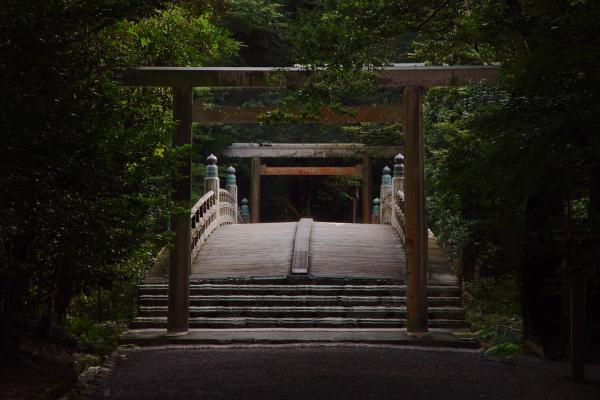
Spiritual Values and the Physical World
April 9-11, 2015
A Conference in Honor of Tom Kasulis on the Occasion of His Retirement
Presented by the Center for Medieval and Renaissance Studies with generous support from The Peking University Institute for Advanced Humanities and several OSU sponsors, including The Center for the Study of Religion, The East Asian Studies Center, The Environmental Sciences Network, The Humanities Insitute, The Institute for Japanese Studies, THe School of Environment and Natural Resources Speaker Series, and the Departments of Comparative Studies, East Asian Languages and Literatures, and Philosophy.
Thursday, April 9 — Science and Spirituality
7:00 PM – 9:00 PM 180 Hagerty Hall
Screening of the Emmy-award winning documentary “Journey of the Universe”
Panel discussion with the co-writer and co-director: Mary Evelyn Tucker, Yale University School of Forestry and Environmental Studies, Co-Founder: Forum on Religion and Ecology
Panelists:
Roger T. Ames, University of Hawaiʽi
James W. Heisig, Nanzan University, Nagoya, Japan
John C. Maraldo, Emeritus, University of North Florida
Graham Parkes, University College Cork, Ireland
Reception to follow
Friday, April 10— Nature, Spirit, Environment In China and Japan
9:00 AM – 11:00 AM Interfaith Prayer & Reflection Room, 3rd Floor, Ohio Union
Roger T. Ames, Professor of Philosophy, The University of Hawaiʽi; Journal Editor, Philosophy East and West
"The 'Great Commentary' and Chinese Natural Cosmology"
Abstract: As important as the Daoist and Confucian canons have been in the articulation of Chinese intellectual history and as much as they can be appealed as textual evidence for claims about early Chinese cosmology, perhaps no single text can compete with the Yijing 易經 or Book of Changes in terms of the sustained interest it has garnered from succeeding generations of China's literati, and the influence it has had on Chinese self-understanding. The productive coordination of the relationship between the changing world and the human experience is the main axis of the Yijing. The purpose of this text is fundamentally normative and prescriptive. It purports to address life’s most pressing question: What kind of participation in these natural processes can optimize the possibilities of a world in which natural and human events are two inseparable, mutually shaping aspects? Confucian morality itself is a cosmic phenomenon that emerges from the synergistic transactions that take place between the operations of nature and human effort
Discussion:
Judson Murray, Wright State University
Graham Parkes, University College Cork
Question and Answer Session
11:00 AM – 12:30 PM Lunch
2:00 PM - 4:30 PM Dawes Arboretum visit
Visit to the renovated Japanese garden at Dawes Arboretum in Newark, Ohio (shuttle transportation available from Ohio Union at 12:45 PM; RSVP to cmrs@osu.edu)
7:00 PM – 9:00 PM 180 Hagerty Hall
Graham Parkes, Professor of Philosophy, University College Cork; Founding Director, Irish Institute of Japanese Studies
“The Role of Rock in the Japanese ‘Dry Landscape’ Garden”
Abstract: The Japanese karesansui (‘dry landscape’) style of garden, while unique to Japan, has its roots in the Chinese tradition of landscape garden making. This presentation thus begins with a brief overview of the classical Chinese garden, in which rocks, or stone, constitute the basic frame and also the main focal points of the garden. To appreciate the role of these rocks, we need to understand that the Chinese regard them not as inanimate lumps of matter but as powerful configurations of what they call qi energies. The Chinese garden is thus not only a place for social interaction and aesthetic appreciation, but also a site for vitalizing one’s existence.
Garden making in Japan at first tended to follow Chinese ways, but, under the influence of Zen Buddhism, the dry landscape style began to exclude organic material. Ultimately the landscape (the Sino-Japanese term means, literally, ‘mountains and waters’) was presented through rocks and gravel alone. In the context of Buddhist contemplation practices, the dry landscape garden also became a place of initiation into ideas and principles from Japanese Buddhist philosophy.
The presentation concludes with a brief consideration of some implications of the dry landscape garden for our contemporary understanding of the interrelations between the human and natural worlds.
Lecture followed by Question and Answer Session and Reception
Saturday, April 11 — Philosophical Roundtable Conversations
Barbie Tootle Room, 3rd Floor, Ohio Union
9:00 AM - 11:00 AM The Body in Religion and Philosophy
Moderator: Roger T. Ames, University of Hawaiʽi
Panelists: Nikki Bado, Iowa State University
Kate Dean-Haidet, Ohio Health Hospice
Wamae Muriuki, University of Nairobi
Shigenori Nagatomo, Temple University
11:00 AM - 12:30 PM Lunch
12:30 PM - 2:30 PM Japanese Philosophy in a Global Context
Moderator: James W. Heisig, Nanzan University
Panelists: Bret Davis, Loyola University Maryland
Gereon Kopf, Luther College
John C. Maraldo, University of North Florida (emeritus)
Michiko Yusa, University of Western Washington
3:00 PM - 5:00 PM East Asian Models of Teaching and Learning
Moderator: Mary Evelyn Tucker (Yale University)
Panelists: Nicholaos Jones (University of Alabama, Huntsville)
Judson Murray (Wright State University)
Mark Unno (University of Oregon)
5:30 PM - 6:15 PM Closing Remarks
James W. Heisig, Professor of Philosophy, Nanzan University (Nagoya, Japan) and Director emeritus, Nanzan Institute for Religion and Culture
“The Future of Japanese Philosophy—Reflections on This Conference”
Final remarks followed by open discussion.
PARKING: Public parking is available (for a fee) at the Ohio Union South Garage. Most events are taking place in the Ohio Union, which is right next door, or Hagerty Hall, which is just across the street to the west.
